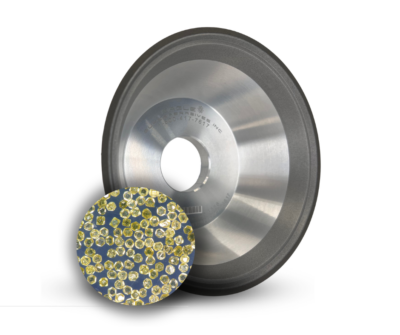One of the most widely used grinding wheel bonds in the superabrasives market is the resin bond grinding wheel. Typically composed of either phenolic or polyimide resin, there are virtually limitless options in terms of ingredient concentration. But what is it that makes the resin bond one of the most commonly used bonds across the industry? Let’s dig deeper into each type of resin, its uses, and its advantages to further investigate the reason behind the popularity of resin across multiple applications.

Phenolic Resin





